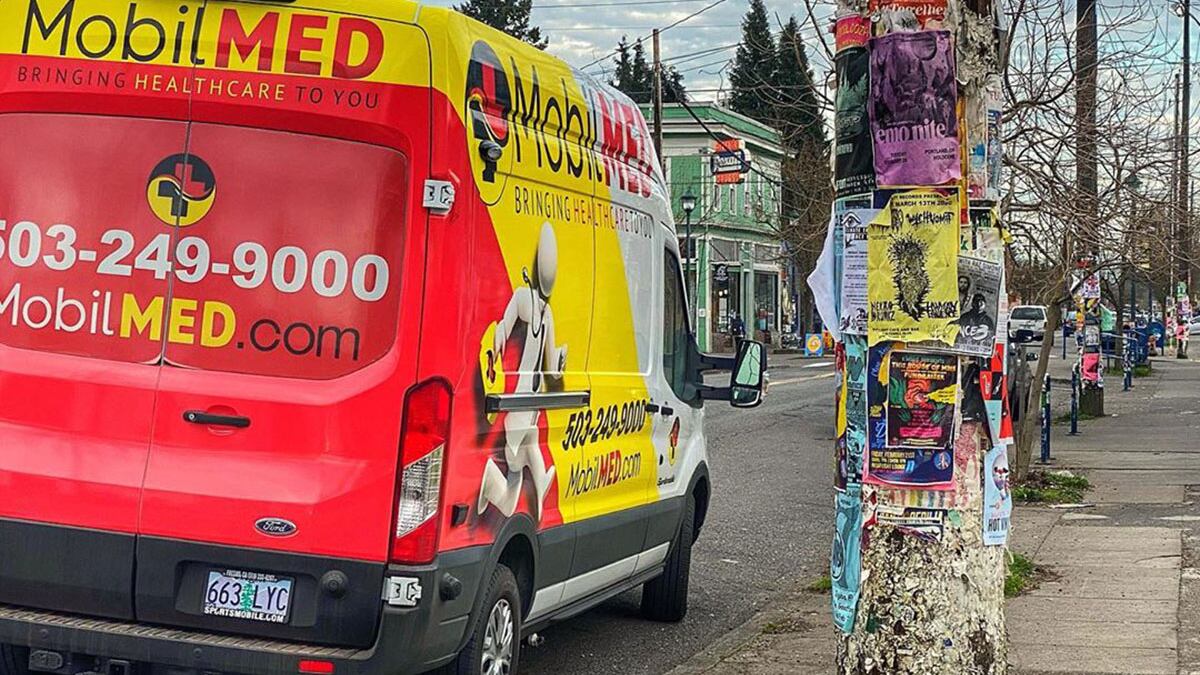By this point, most of us have come to rely on some sort of home delivery service, for groceries, dinner, alcohol—even strippers.
Add health care to that list.
"Even prior to COVID-19, there are still huge reasons to be at home, and one is simply time," says Dr. Mark Hosko, founder of mobile urgent care clinic MobilMED. "If you're a busy adult, that's critical. Also, many people have transportation problems. You use public transportation, you have a leg injury, you have children and have to get child care, you need somebody to walk the dog—these are all barriers, and what could be a very simple exam turns into an all-day event."
"The health care assistant is essentially the hands of the doctor or the provider," Hosko says.
Though it is not equipped to treat broken bones, severe abdominal pain, or lacerations that require stitches, the van is outfitted with an X-ray machine, labs for rapid diagnostic tests, medical supplies and the most common medications. Service is also currently limited to the east side of the Willamette River, but there are plans to expand in the future.
Hosko believes the current model of health care—with prohibitive access and crowded urgent care waiting rooms—will soon be a thing of the past. By employing modern technology, MobilMED and other similar services will be the 21st century version of that old anachronism: the house call.
"I honestly see the future of health care moving that way: where the help comes to the patient rather than the patient having to get to the help," he says. "The patient is the one who is ill and has trouble moving. Transport of help to the patient can now be done very easily."

